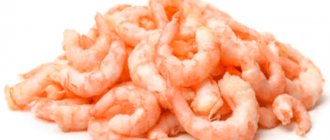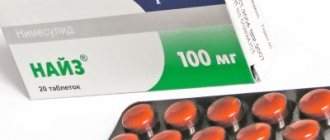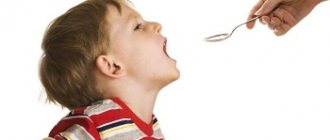The temperature rises when the body is in danger, as a reaction of the immune system to infection. But how can a newborn child knock it down ? Here's what modern experts write about it. An increase in a baby's temperature has always frightened parents. Especially if it is their first child. Moreover, it is quite difficult to choose an antipyretic for newborns from the first days of life. After all, what helps adults is dangerous to give to infants . Here are some modern means that lower the temperature that can be given to newborn children.
What antipyretics can newborns use?
It's best to do without them. However, if you have no alternative, you need to choose special medications for infants based on ibuprofen or paracetamol at the pharmacy. For infants, there are forms such as special suppositories and syrups for fever. The most popular is syrup for newborns . It is almost immediately absorbed into the blood and within 4 hours the temperature drops. The dispenser is very convenient and easy to use. The only drawback of syrups for temperature may be the allergens-dyes that they contain. Therefore, you need to carefully choose such a remedy for newborns . Although paracetamol-based preparations for babies under 1 month do not contain any additives and are well tolerated. The only drawback is that they are difficult to get at the pharmacy due to their lower cost than similar drugs.
Candles are less comfortable for a child to use.
But they last longer than syrups. Moreover, the newborn may begin to burp or simply regurgitate the syrup and it will have almost no effect. Therefore, parents who are expecting the birth of a baby should also buy candles at the pharmacy. Candles can be used already in the first days of life and they are very good at helping to reduce the temperature . Important Note: Many medications are labeled as being suitable for use in children as young as 4 months of age. In fact, they are also given to infants in a reduced dosage. True, it is worth consulting with a specific pediatrician who, knowing the child’s condition, will tell you which medications are suitable for him. These antipyretics are worth looking at at the pharmacy for your child. But remember that many drugs can cause allergies , so they need to be given in doses, first as a test, then in full form. And, of course, monitor the general condition of your baby. If the temperature drops well and does not reach a high level after 4 hours, then it is a common cold. If the temperature not only rises quickly, but continues to rise, you should urgently call a doctor . He will determine the child’s diagnosis and prescribe special anti-infection medications.
Hypothermic agents during tooth growth
According to pediatricians, when teething, a baby should not normally have hyperthermia.
Doctors believe that fever occurs due to a viral or bacterial infection. This opinion is often contradicted by facts.
In some babies, the temperature rises due to inflammation during gum eruption. The infant feels severe pain.
For hyperthermia due to teething, you can use Paracetamol or Ibuprofen in suppositories or syrup (suspension).
Panadol, Nurofen, Cefekon, Ibufen and other drugs are actively used.
At what temperature should a newborn be given an antipyretic?
Fearing illness, parents begin to give their infant various antipyretics. Yes, they bring down the temperature, but this method of fighting the disease can negatively affect children's immunity . A high temperature during illness is a normal and natural reaction of a child’s immune system. When it increases, the baby’s body begins to produce interferon, a special protein that promotes natural immunity. Therefore, if the temperature does not rise above 38 degrees, it is not worth bringing it down . Children's immunity will cope with the disease and will gradually strengthen.
But you also need to look at the general condition of the child, since different children tolerate the temperature differently. Some children are simply hot, but at the same time they do not have lethargy or increased anxiety. Others do not tolerate high temperatures well. And, if you notice increased drowsiness, anxiety, seizures and other symptoms, it is better not to self-medicate, but call an ambulance. Especially if, even after taking antipyretic drugs, the temperature does not drop for long and quickly rises even higher. Children's antipyretics can only temporarily alleviate the child's condition if the immune system itself cannot cope with the infection. At the hospital, doctors will give him special drugs , affecting the cause of the disease. They will help the baby recover and avoid dangerous diseases.
And simple antipyretic drugs for newborns help if the child’s condition is not severe. They facilitate the functioning of children's immunity and contribute to a speedy recovery from illness.
When should you lower your temperature?
Parents should be aware that the temperature reaction of newborns differs from that of older children. In the first months of life, a baby’s temperature can rise very quickly and under the influence of various factors. The temperature of a baby of this age should be brought down when it rises above +38°C. You should also take into account the general condition of the baby.
It is very important not to act on your own, but to immediately call a doctor if the child has any congenital pathologies, especially if they concern the nervous system and heart.
This is interesting: Enterocolitis: 10 symptoms, treatment (25 drugs) of chronic, acute forms in adults and children
Antipyretics for newborns from the first days
They are prescribed by a pediatrician for each individual child, since many drugs can cause allergies. Most often, these are rectal suppositories, syrups and solutions. Antipyretics for newborns up to 1 month are usually prescribed by a doctor, depending on the specific disease or early identified allergic reactions, if any. Among the drugs that can already be given to a child per month, it is worth noting Panadol for children . Which is available in the form of suppositories and suspensions, paracetamol for children (syrup) and effelargan (syrup). Several antipyretic suppositories have also been noted, which are not only hypoallergenic, but also more effectively reduce fever. Especially if the baby cannot eat food and regurgitates it.
Additional ways to reduce fever
It makes no sense to talk about which drug is good for reducing fever and which is not advisable to use. After all, for each patient it will be necessary to select drugs individually. Most mothers initially try all medication options, and then choose the most effective one for themselves.
It is important to know! Today, antipyretic drugs are known in the form of drops, which are also quite convenient to use. These drops can be diluted with milk or water, and then given to the baby to drink.
Additional measures to reduce fever in infants include the following actions by parents:
- Give the child water, milk and other types of liquids, depending on the age of the baby. This will prevent the development of dehydration and will also speed up the baby’s recovery process.
- Provide comfortable microclimate conditions in the room: temperature at 18-22 degrees, and humidity within 60-70%.
- Dress your baby in comfortable and light clothes. At the above room temperature, it is enough to dress the baby in light clothing.
Parents don't need to make rash decisions in a hurry. Consult your doctor first and then use the medications. To avoid an awkward situation, you should always have antipyretic medications at home, which should be stored preferably in the refrigerator.
Antipyretic suppositories for newborns
You can find quite a lot of them in pharmacies. However, not all children tolerate suppositories well, even for newborns; here you need to pay attention to the baby’s characteristics. Some people can take syrups, solutions against temperature, while others are suitable for suppositories. What kind of suppositories can be given to infants? All that are marked from 3 months to 6 years . There will be nothing terrible if the child is under 3 months old, since with this marking manufacturers are reinsured against various unforeseen cases. In fact, baby candles for very young children under one year old are completely safe. And only in very rare cases do they have any adverse consequences. And only if they were used for other purposes. In pharmacies you can find suppositories for babies such as Nurofen, Tylenol, Panadol for children, and Effelargan. Cefekon D suppositories . They are very convenient and safe to use, cause minimal inconvenience when inserted and are suitable for newborns of different weights.
Antipyretic drugs prohibited for infants
- Combined tablets containing ibuprofen and paracetamol (Ibuklin Junior tablets). They can be used for children over 3 years of age.
- Analgin. It is not used for children. It can be used as part of a lytic mixture if it is not possible to reduce the temperature for a long time by other methods. Used only in extreme cases, as prescribed by a doctor and in his presence.
- Aspirin. It should absolutely not be used to lower the temperature of children under 12 years of age. The drug is dangerous due to complications and the development of dangerous pathologies.
Important! It is strictly not recommended to deviate from age restrictions when choosing an antipyretic drug. The components in the drug may act differently and cause side effects. For a developing organism, an inappropriately selected antipyretic can cause irreparable damage.
This is interesting: Osteoporosis: what it is, causes, symptoms, diagnosis, treatment and prevention, prognosis
What to give after DTP vaccination
This vaccination often causes anxiety and fever . If this happens, then you must have any baby product in the house that reduces the temperature. You can use either a regular candle or a solution or powder. It is best to take an antipyretic for newborns after vaccination, which you have already taken with your child and are convinced of its effectiveness. Or any other paracetamol-based drug developed specifically in a dosage for infants. However, if after vaccination the child has a slight temperature slightly above 37, 2 there is no need to worry . This is a completely predictable reaction to a vaccine that contains a pathogenic but weakened virus. The purpose of vaccination is to ensure that the child’s natural immunity copes with a weakened infection and the child develops antibodies.
In the first months, the newborn receives maternal immunity, but its effect is short-lived.
Therefore, you should not lower the temperature if it is slightly elevated. The only danger can be posed by an alarmingly high temperature above 38 degrees with general weakness, dizziness, nausea, vomiting, and severe signs of a cold. In this situation, it is better not to try to help him yourself, but to consult a doctor. Especially if the body temperature rapidly rises and the child’s condition clearly worsens. Have you used the antipyretic for newborns from the first days of life mentioned in the article? Or any other?
When can you do without an antipyretic?
Young children have an increased sensitivity to chemicals, so it is understandable that parents want to minimize the impact of various medications on the child’s body. To determine whether a fever-reducing medication can be avoided, closely monitor the infant and follow your pediatrician's instructions.
If the child tolerates the increase in temperature relatively calmly, the thermometer readings do not exceed 38-39 degrees, and there are no aggravating circumstances (heart defects, pathologies of the nervous system and others), nothing can be given. But as soon as any deterioration in the baby’s condition is noted, immediate action must be taken.
Popular drugs
A newborn baby can only be given drugs whose active ingredient is paracetamol. It should be noted that all of these drugs are approved for use in babies older than 1 month, so the decision to prescribe them to a newborn should only be made by a doctor.
Paracetamol will help reduce fever and eliminate pain in cases of viral infections, but for diseases caused by bacteria, as well as serious health problems, this drug is ineffective. So if the temperature does not decrease after using such a medicine, there is a possibility that the newborn’s disease is much more serious than a common ARVI.
How are they given?
First of all, it is important to note that any medications for a newborn baby must be prescribed by a doctor. Only a pediatrician can determine why the baby’s temperature has risen and then choose the right treatment. It is also important to adhere to the dosages indicated on the packaging of the selected antipyretic drug.
The suspension or syrup is given to a child in the first months of life using a special pipette. Having collected the required amount of medicine, it is poured into the little one’s mouth. The medicine can also be given from a spoon, but for most infants this method of giving the medicine can be problematic.
If you need to administer a suppository with an antipyretic effect to your baby, you should lay the baby down, raise his legs and carefully insert the suppository into the anus. To make insertion easier, you need to use oil or baby cream.
Prohibited products
There are also a number of remedies that parents should not use. These include:
- Aspirin. This drug has a strong effect and quickly reduces the temperature, but in children it can cause irreversible consequences, including Reye's syndrome (damage to the brain and liver).
- Analgin. This remedy should only be used intramuscularly. Analgin has a detrimental effect on the baby's hematopoietic system, causing serious complications.
- Nimesulide. Children under two years of age are prohibited from giving drugs such as Nimulid and Nise.
Remember that you only need to lower the temperature when necessary. If the baby’s temperature stays around 38 degrees and the baby feels good, let the body fight on its own. If the baby is very ill even at 37.5 degrees, then in this case it is advisable to give him an antipyretic in order to alleviate the child’s condition and prevent seizures.











